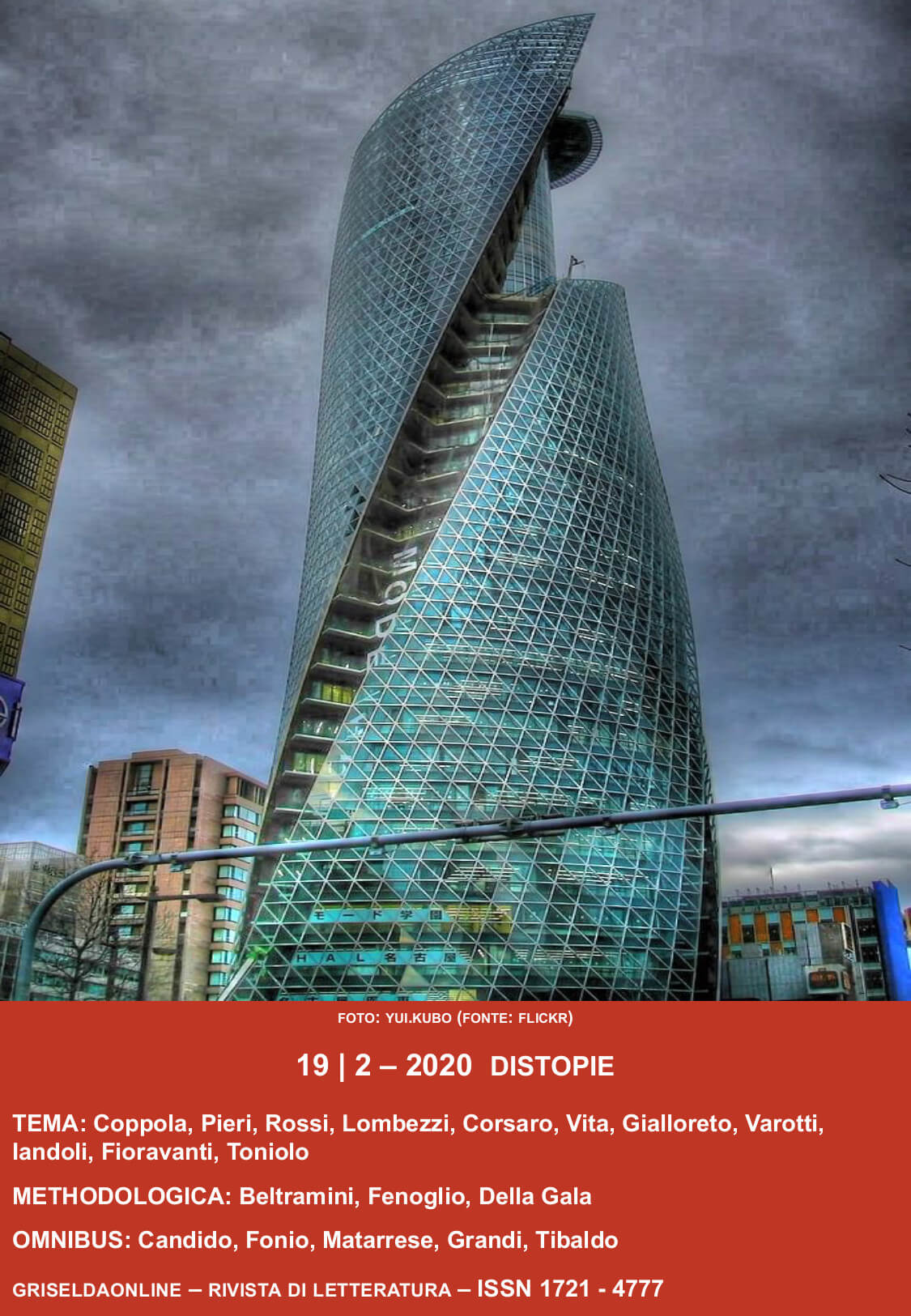The metropolis of fools and “imbestiati”: dystopia and class conflict in Conspiratio Oppositorum by Mario Spinella
DOI:
https://doi.org/10.6092/issn.1721-4777/11462Keywords:
Spinella, Francofortesi, Psicoanalisi, Sperimentalismo, MarxismoAbstract
This paper examines the second novel by Mario Spinella, distinguished Marxist intellectual founder of the magazine «Utopia» (1971-1973), and aims to investigate the ways in which the conventions of dystopic literature are assumed in an ironic key (in line with the author's experimental poetics) without renouncing the vehement denunciation of the social order of the neo-capitalist polis (an ideological position in dialogue with the elaboration, by the exponents of the Frankfurt School, of a radical critique of the System). Spinella's inclination for the human sciences pushes him in Conspiratio oppositorum to bring into play the psychoanalytic categories (from Freud to Lacan: Spinella was among the animators of the magazine «Il piccolo Hans»), political (the book, written from 1968 to 1971, attempts to verify the topicality of the concept of class conflict) and divergent thinking (the ‘unreliable’ perspective of the insane, common to the contemporary novels of Volponi and Malerba, is made to interact with Foucaultian theories on the total institution).
References
G. Claeys (ed.), The Cambridge Companion to utopian Literature, Cambridge, Cambridge University Press, 2010
G. Claeys, Dystopia: A Natural History: a Study of Modern Despotism, Its Antecedents, and Its Literary Diffractions, Oxford, Oxford University Press, 2017
R. Donati, Critica della trasparenza, Torino, Rosenberg & Sellier, 2016
N. Frye, Varietes of Literary Utopias, «Daedalus», vol. 94, n. 2, Utopia Spring 1965
I. Howe, A World More Attractive; A View of Modern Literature and Politics, New York, Horizon Press, 1963
V. Jankélevich, Il puro e l’impuro, a cura di E. Lisciani-Petrini, Torino, Einaudi, 2014
M. Lunetta, L’aringa nel salotto. Ricognizioni su 33 narratori italiani, Poggibonsi, Lalli, 1984
S. Manferlotti, Anti-utopia. Huxley, Orwell, Burgess, Palermo, Sellerio, 1984
G. Manganelli, Concupiscenza libraria, Milano, Adelphi, 2020
H. Marcuse, Psicanalisi e politica, Roma-Bari, Laterza, 1968
H. Marcuse, Controrivoluzione e rivolta, trad. it. di S. Giacomoni, Milano, Mondadori, 1973
L. Mumford, Storia dell’Utopia, trad. it. di R. D’Agostino, Roma, Donzelli, 1997
F. Mussgnug, Finire il mondo. Per un’analisi del romanzo apocalittico italiano degli anni Sessanta, «Contemporanea», 2003, n. 1
F. Muzzioli, Scritture della catastrofe, Roma, Meltemi, 2007
W. Pedullà, La letteratura del benessere, Roma, Bulzoni, 1973
M. Spinella, Sorella H, libera nos, Milano, Mondadori, 1968
M. Spinella, Conspiratio Oppositorum, Milano, Mondadori 1971
M. Spinella, Né ingenua né sentimentale, «Il piccolo Hans», n. 37, gennaio-marzo 1983
Downloads
Published
How to Cite
Issue
Section
License
Copyright (c) 2021 Andrea Gialloreto

This work is licensed under a Creative Commons Attribution-ShareAlike 4.0 International License.





